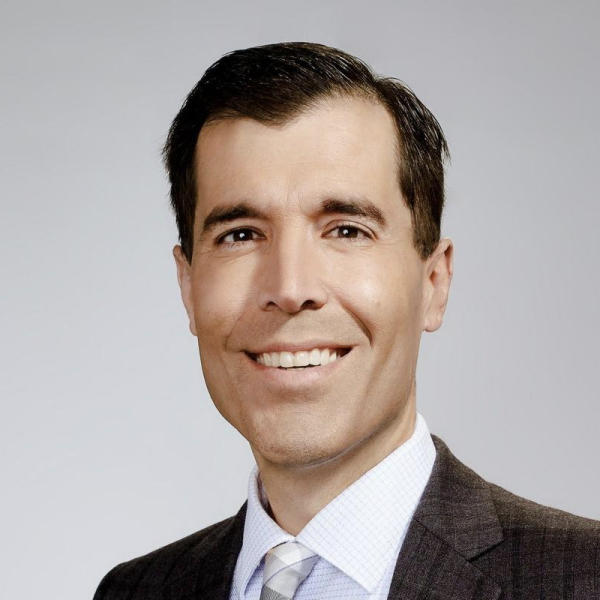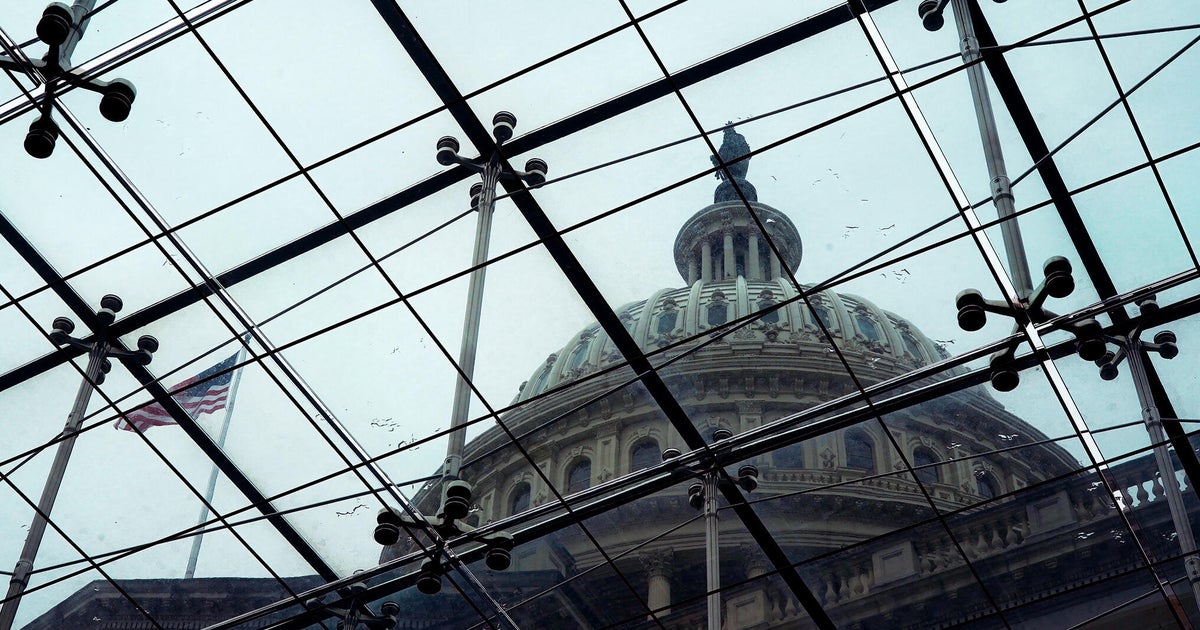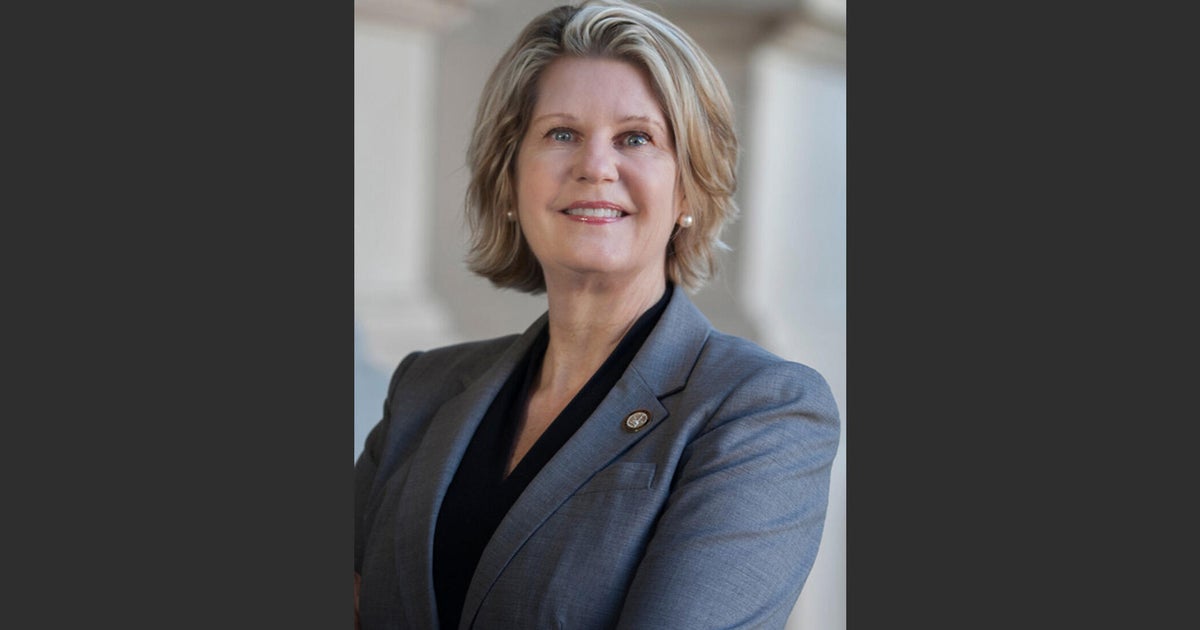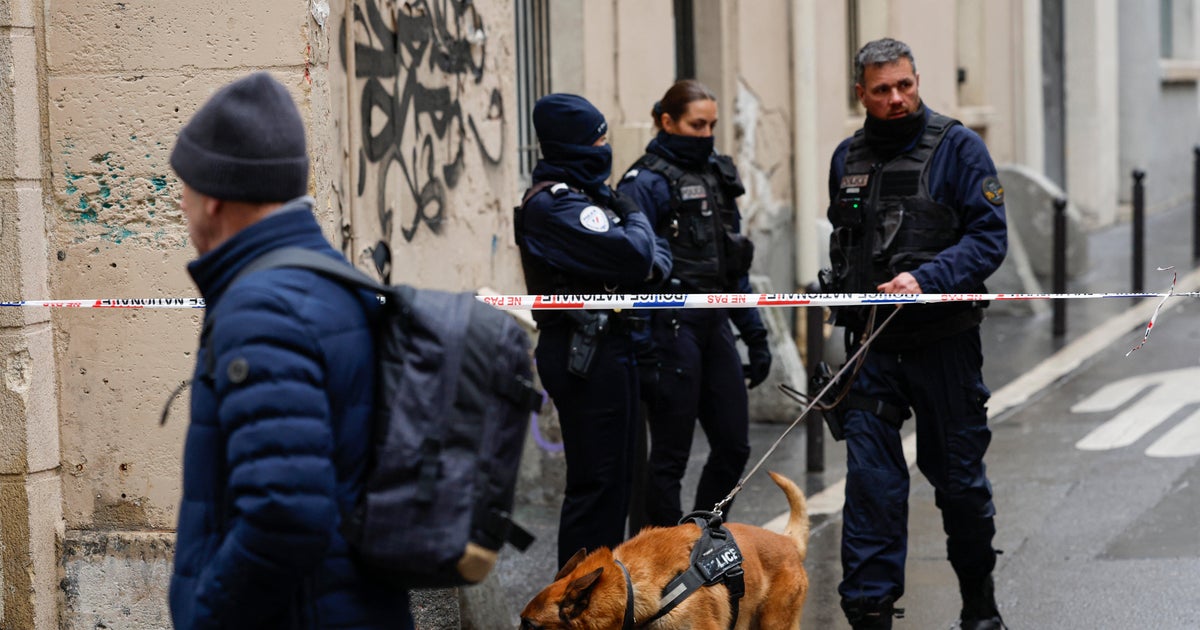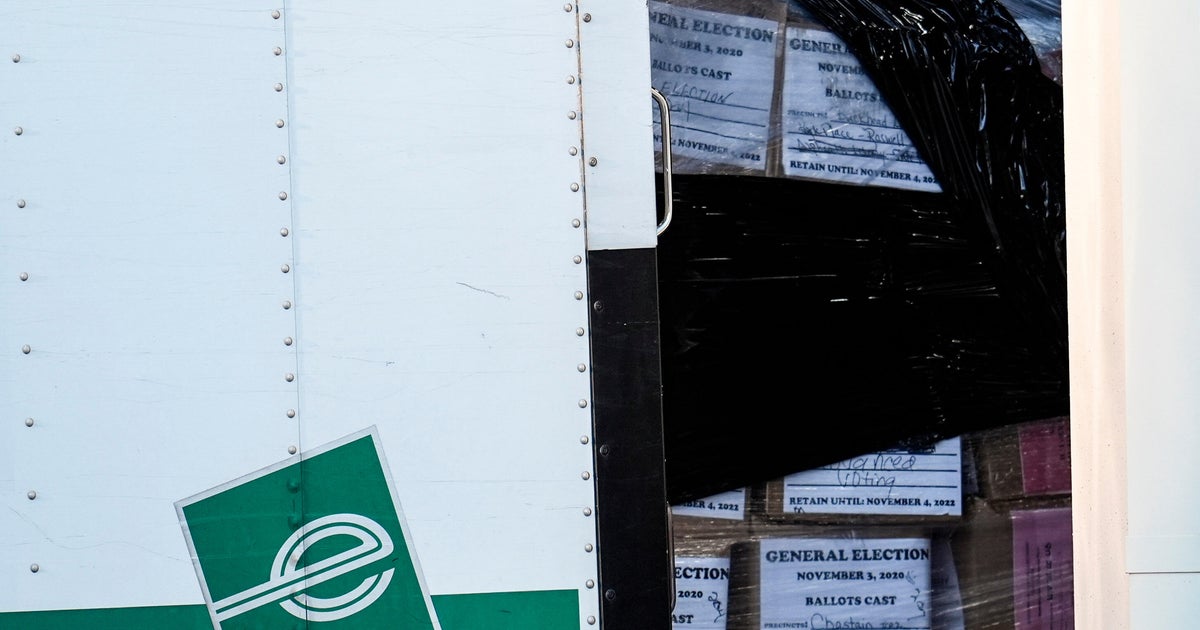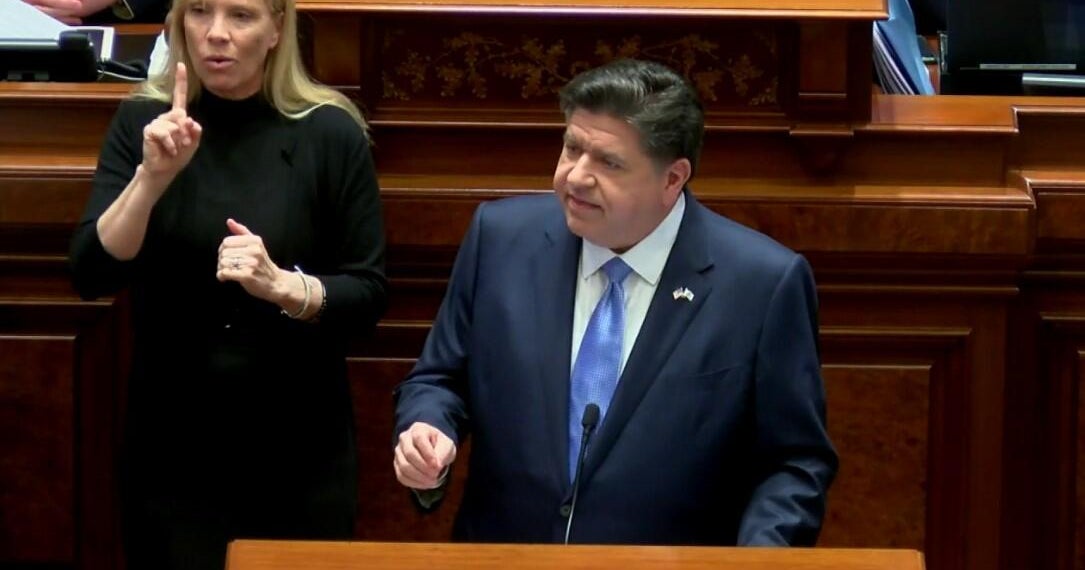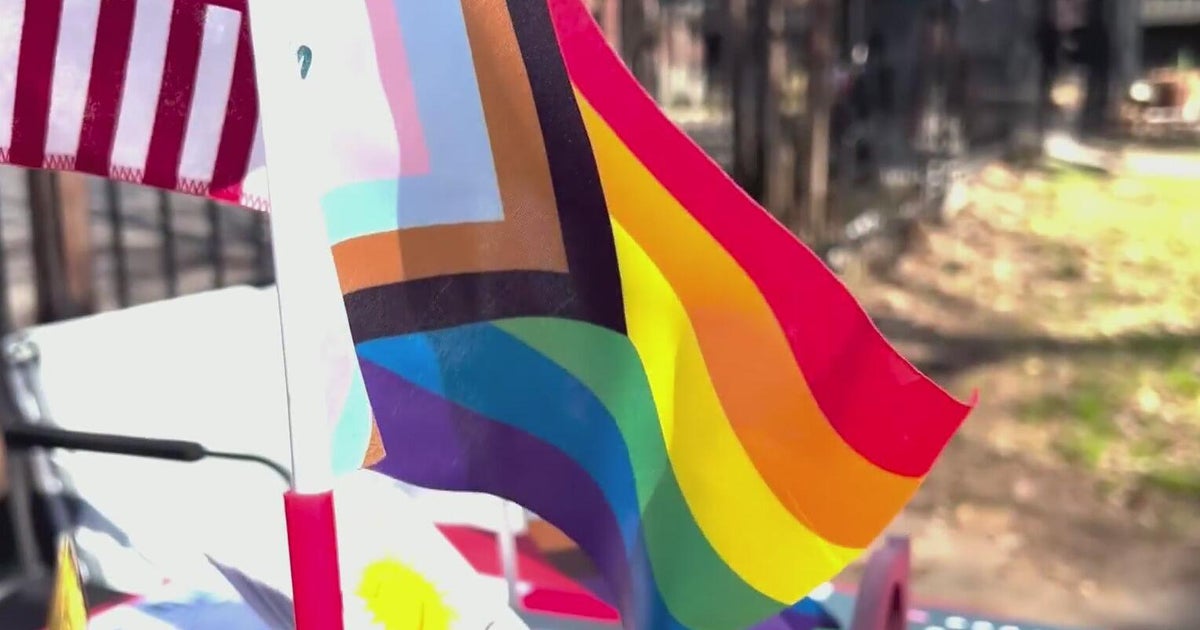After two years, Attorney General Merrick Garland says work on Jan. 6 probe is "far from over"
Washington – In the two years since a pro-Trump mob attacked the U.S. Capitol in an unprecedented riot, an equally historic criminal investigation into the insurrection has played out less than a mile away from the Capitol grounds at Washington, D.C.'s federal courthouse.
Far-right groups
Members of the far-right Oath Keepers and Proud Boys groups now stand trial there for seditious conspiracy, accused of planning to forcibly resist the peaceful transfer of power from Donald Trump to Joe Biden.
In total, prosecutors say they have brought charges against more than 950 individuals over the last two years, ranging from unlawful trespassing to the most severe: seditious conspiracy.
The first year of the Justice Department's sprawling probe into the breach was marked by over 700 arrests, likely the largest for a single investigation. They were charged with various crimes and accused of participating in the mob that forced Congress to suspend its certification of the 2020 Electoral College votes.
During this second year of the investigation, as courthouse COVID-19 restrictions on jury panels eased, authorities focused on convicting the alleged leaders and conspirators of the riot accused of agitating and leading the violent mob.
In November, Oath Keepers founder Stewart Rhodes and associate Kelly Meggs became the first defendants to be convicted of sedition, the most serious charges brought so far. The two men and their three co-defendants – who were acquitted of seditious conspiracy but convicted of other counts after an 8-week trial – face potential multi-year prison sentences. The mixed verdict was not what prosecutors had argued for as the trial got underway in October, but the pair of sedition convictions prompted a congratulatory message from Attorney General Merrick Garland.
Four more of Rhodes' co-defendants, also accused of seditious conspiracy, are currently being tried, as are members of the Proud Boys – including leader Enrique Tarrio. The Proud Boys case is currently in the midst of a lengthy jury selection process. The defendants currently on trial from both groups have pleaded not guilty
Over the last year, 40 defendants have been convicted by judges and juries at contested trials, found guilty of committing both violent and nonviolent crimes.
Guy Reffitt, a member of the Texas Three Percenters militia group, was the first to be found guilty at trial. A jury convicted him in March of bringing a gun onto Capitol grounds and other crimes. The jury took under four hours to deliberate, and a federal judge later sentenced him to more than 7 years in prison.
That same month, a federal judge found Cowboys for Trump founder Couy Griffin guilty of the nonviolent crime of entering restricted U.S. Capitol grounds. He was acquitted of a misdemeanor charge of disorderly conduct.
Only one defendant, Matthew Martin, has been acquitted of all charges prosecutors filed against him. Martin was one of a handful of defendants to opt for a "bench trial", in which a judge heard arguments and handed down a verdict.
Some of the defendants who opted to stand trial this year, like Rhodes and Tarrio, have attempted to get their cases dismissed, alleging prosecutorial overreach or erroneous interpretation of legal statutes. They have also tried to move their cases out of Washington, D.C. with claims that potential jurors in the nation's capital cannot be impartial.
Tarrio's attorney said as recently as Thursday that they intend again to ask to move the case out of Washington, D.C., and earlier this week, another defendant cited the overwhelming rate of convictions of Jan. 6 defendants in seeking to transfer his proceedings.
Federal judges have so far rejected the various arguments in all but one case, which now sits before an appeals court for review.
The accused, dozens of whom remain incarcerated in the Washington, D.C. area, and their legal teams have also contended with an unusual backlog of cases that delayed some trials well into this year. Proceedings were slowed by the relaxation of COVID restrictions, the sheer number of cases and the volume of evidence. Defense attorneys of incarcerated defendants have also repeatedly told federal judges that they have had difficulty communicating with their clients ahead of trial, another result of COVID and the voluminous case load.
According to a CBS News review of court hearings and filings over the past two years, more than 480 other defendants pleaded guilty to counts stemming from the Jan. 6 attack. Nearly 120 of them admitted to felony counts, including 52 who pleaded guilty to assaulting officers on Jan. 6.
Four defendants have admitted to the severe seditious conspiracy count, according to the Justice Department, including leaders and members of the Oath Keepers and Proud Boys groups.
Prosecutors secured guilty pleas and subsequent prison sentences in other, less severe cases over the last year, too, like former West Virginia lawmaker Derrick Evans who admitted to live-streaming himself on Facebook amidst the mob. He got three months in prison.
According to the Justice Department, about 351 federal defendants have been sentenced for their criminal activity during the Capitol attack. Over 190 were incarcerated.
Retired NYPD officer Thomas Webster was found guilty of assaulting police officers outside the Capitol with a flagpole on Jan. 6 and was subsequently sent to prison for 10 years, the harshest sentence so far handed down in the investigation. His release date is projected in late 2030.
Trump allies and Jan. 6
It was during one of the hundreds of Jan. 6 sentencing hearings conducted in the last year that a federal judge – one of more than a dozen on the bench who continue to facilitate the unprecedented onslaught of cases – warned of the risk of "autocracy" in America and compared the Capitol attack to the Civil War.
"There was a group of people who knew the election wasn't stolen, yet rioted to install their preferred candidate," said U.S. District Judge Colleen Kollar-Kotelly during a November sentencing hearing, adding, "Lawlessness breeds lawlessness."
Of the approximately 950 individuals charged, more than 280 have been accused of assaulting, resisting, or impeding officers and 50 faced conspiracy charges in the two years since the Capitol breach, prosecutors said.
Kollar-Kotelly was not the only federal judge throughout the country to level such claims in the last year.
Another judge in California laid allegations of lawlessness squarely at the feet of former President Donald Trump. In March, Judge David Carter wrote in a civil ruling that based on the evidence available to him, it was "more likely than not that President Trump corruptly attempted to obstruct the Joint Session of Congress on January 6, 2021." Carter delivered his opinion in a lawsuit between Trump confidant John Eastman and the now-defunct House Select Committee that investigated the attack.
The ruling had no legal bearing on Trump or Eastman's potential criminal culpability but was seized upon by many of Trump's critics on the committee.
The Jan. 6 House select committee's work often collided with the Justice Department, thrusting federal prosecutors investigating the criminal attack into a political fight.
Trump ally Steve Bannon was tried and convicted of contempt of Congress for refusing to comply with Congress's request for documents and testimony. Another Trump confidant, Peter Navarro, was charged with contempt, too. He has pleaded not guilty and will stand trial later this year.
In July, the Justice Department told the committee it needed access to the panel's interview transcripts and evidence to help further criminal probes into the events surrounding Jan. 6. The request mostly went unanswered until last month, when thousands of pages were released to the public and made available to prosecutors before the committee was dissolved.
The committee's work also impacted some Jan. 6 criminal proceedings, including the Proud Boys' seditious conspiracy trial currently under way. Last year, defendants convinced a federal judge to "reluctantly'' delay the trial because of the publicity and attention the Proud Boys received in the committee's televised hearings. As recently as Thursday, attorneys for Tarrio and his co-defendants again told the judge in open court that the recent release of committee interview transcripts related to their clients might unduly complicate the trial.
And in a historic move, the House panel recommended the Justice Department pursue at least four criminal charges against former President Donald Trump related to his alleged efforts to thwart the transfer of presidential power. The unprecedented, yet largely symbolic, move marked the first time a former president has been the subject of a criminal referral by Congress.
Special counsel to investigate Trump
Before the House committee's criminal referral, Garland appointed a special counsel to oversee key aspects of the Jan. 6 investigation related to the former president. One-time federal prosecutor John "Jack" Smith, who most recently prosecuted war crimes at the Hague, took over all of the Justice Department's Trump-related investigations.
Smith is now in the U.S., sources tell CBS News, and is working with federal prosecutors to investigate Trump's conduct leading up to the Capitol attack.
Since his appointment, Smith's team has subpoenaed local election officials in Arizona, Michigan, Pennsylvania and Wisconsin for communications with Trump and his campaign, CBS News learned. And in recent weeks, several high-profile members of Trump political circles appeared at the D.C. federal courthouse where Smith has convened numerous grand juries, including former White House adviser Steven Miller and former White House Counsel Pat Cipollone. None of these people have been charged with or accused of any crimes.
In November, sources familiar with the matter told CBS News that the Justice Department had reached out to speak with former Vice President Mike Pence.
Trump – whose alleged mishandling of classified documents after leaving office is also part of the special counsel's probe – has denied wrongdoing, targeted the probes as politically-motivated and attempted to invoke various privileges to shield certain witnesses from testifying behind closed doors.
In a written statement marking the second anniversary of the Capitol attack, Garland said, "We remain committed to ensuring accountability for those criminally responsible for the January 6 assault on our democracy. And we remain committed to doing everything in our power to prevent this from ever happening again."
Despite the investigative advances over the last year, federal investigators still face setbacks. Judges have ruled against them in various pretrial hearings and rejected their efforts to unanimously convict defendants on every count charged, delivering mixed verdicts in a handful of cases. In one case, a judge acquitted Hunter Seefried, Delaware, of allegedly breaking a window on Capitol grounds.
And on Wednesday, the FBI announced a reward worth $500,000 for any information leading to the arrest of an individual who placed pipe bombs near the headquarters of the Republican National Committee and the Democratic National Committee in Washington, D.C., on the night before the Jan. 6 Capitol attack.
The FBI's announcement of the half-a-million-dollar reward comes as investigators again seek the public's help to find the individual who placed viable explosives around the Capitol building on Jan. 5, 2021. In the last year, investigators have made little progress in identifying a suspect – according to people familiar with the matter – and the five-fold increase on Wednesday reflects the case's stagnation.
Prosecutors have estimated that the total number of defendants accused of participating in the Capitol breach could reach 2,000 and in his statement released this week, Garland said the Justice Department's work "is far from over."
Andy Triay, Clare Hymes, Nicole Sganga, Melissa Quinn, Fin Gomez, Jacqueline Kalil, John Woolley, Keshia Butts, and Paulina Smolinski contributed to this report.
